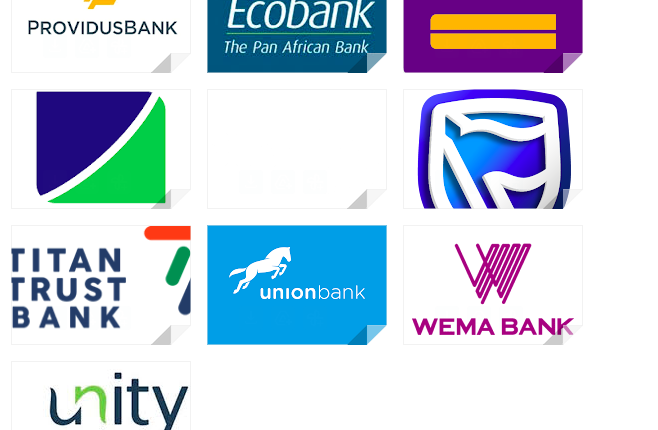Only 14 of the 24 lenders with commercial banking licenses have surpassed the target, according to information obtained just six months before the Central Bank of Nigeria (CBN) set a deadline of March 31, 2026, for the recapitalization of the nation’s banks.
Based on their levels of authorization, the CBN gave the nation’s banks two years to satisfy the new minimum capital requirements last year. National banks need N200 billion, regional banks N50 billion, and commercial banks with international authorization must increase their capital to N500 billion.
In the wake of the global financial crisis, which severely weakened Nigerian banks and created a liquidity issue due to a sharp increase in non-performing loans or exposure to the oil and gas and capital market sectors, the CBN further defined the capital base for the purposes of the recapitalization exercise to include: paid-up share capital and share premium, excluding other reserves and retained earnings. This was the first step that forced all banks back to the market.
In order to salvage the sector and the economy, they were subsequently forced to sell these toxic loans to the Asset Management Corporation of Nigeria (AMCON) at a premium, bring in new funding, and start forced mergers and acquisitions.
According to industry sources, the majority of the consistently significant companies are on the edge of meeting their targets, even though only 14 banks have done so thus far.
Recall that in November of last year, Dr. Emomotimi Agama, the Director General of the Securities and Exchange Commission (SEC), said that nine banks that applied to the market had received N1.682 trillion in new capital in 12 applications. Guaranty Trust Holding Company (GTCO), Zenith Bank, First City Monument Group, Access Holdings Company, FBN Holdings, UBA Plc, and Fidelity Bank are among them.
UBA and First Bank are anticipated to meet the target before March 31, 2026, while the nation’s main five banks—Guarantee Trust Bank, Access Bank, and Zenith Bank—are thought to have reached and even exceeded it.
With a reported war chest of N614.65 billion, Zenith Bank leads the group, while Access Bank boasts a N594.9 billion, aided by the N351 billion it received from its successful rights offering the previous year. After receiving a new capital infusion from its parent firm, Guarranty Trust Bank currently boasts a capital base of N504 billion.
According to additional information obtained, First Bank must contribute roughly N70 billion, which industry observers think is certainly attainable for the nation’s oldest surviving bank, which was founded in 1894. United Bank for Africa is currently searching the capital market for a new N157.843 billion in rights to current shareholders, which is its second of its kind under the current regime. In order to wrap off its recapitalization program, Africa’s global bank is also anticipated to make a membership offer to the general public.
Wema Bank is reportedly in need of an additional N100 billion capital injection after raising an initial N40 billion through a rights issue, while Stanbic IBTC Bank is another player thought to have achieved its goal of N200 billion following a successful exercise that brought in N181.4 billion, pushing it above the minimum threshold for its category. The bank intends to use a combination of rights issues and public offerings, among other methods, to raise the necessary funds.
In order to function as a national bank, similar to Standard Chattered Bank Nigeria, Ecobank Transnational Inc., headquartered in Lome, Togo, is anticipated to recapitalize its Nigeria division.
In the first half of 2025, Sterling Holding Company successfully raised approximately N100 billion through a combination of rights issues and private placements. This will be followed by a planned N200 billion new capital injection through a combination of rights issues, private placements, and public offerings that have already been approved by shareholders.
Similar to what happened between Titan Trust and Union Bank of Nigeria, analysts predict that the upwardly mobile Providus Bank’s pending regulator-induced takeover of Unity Bank will prevent the former from failing.
While Keystone Bank Limited is courting possible partners with a stronger capital base and is reportedly considering a merger and acquisition with another player—a likely outcome for banks finding it difficult to meet the new capital requirements—the CBN is confident that the bank will remain stable and generate the necessary N200 billion.
Given the CBN’s assurance of progress in its recapitalization journey, the public expects that an M&A option will continue to be the best course of action for Polaris Bank, a financial institution currently owned by the Asset Management Corporation of Nigeria (AMCON). However, it is currently unclear how the AMCON plans to secure an estimated nearly N150 billion to prop it up.
All things considered, analysts and industry observers are optimistic that the recapitalization process will allow the banks to fulfill their financial intermediation responsibilities, especially with regard to high-value transactions that were previously the sole domain of foreign banks in the US$1 trillion economy that the Federal Government had in mind.

